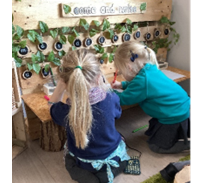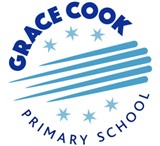Literacy
There are three Early Learning Goals in this area:
Comprehension:
Children at the expected level of development will:
-
Demonstrate understanding of what has been read to them by retelling stories and narratives using their own words and recently introduced vocabulary.
-
Anticipate (where appropriate) key events in stories.
-
Use and understand recently introduced vocabulary during discussions about stories, non-fiction, rhymes and poems and during role play.
Word Reading:
Children at the expected level of development will:
-
Say a sound for each letter in the alphabet and at least 10 digraphs.
-
Read words consistent with their phonic knowledge by sound-blending.
-
Read aloud simple sentences and books that are consistent with their phonic knowledge, including some common exception words.
Writing:
Children at the expected level of development will:
-
Write recognisable letters, most of which are correctly formed.
-
Spell words by identifying sounds in them and representing the sounds with a letter or letters.
-
Write simple phrases and sentences that can be read by others.
There are many opportunities for children to engage in activities that promote a love of books and writing. In Reception a text is used as the starting point each week upon which we base children’s learning. The weekly text becomes embedded across the learning environment through a range of cross curricular activities. It is through this approach that children begin to internalise new vocabulary, language patterns and begin to retell stories.
From September children are encouraged to engage in activities that develop pencil control and they learn to write their name with correct letter formation.
Children are placed in focus groups for phonics, enabling learning to be specific, targeted and personalised. Phonic sessions take place daily and are used to enhance the links between sounds, reading and writing.



